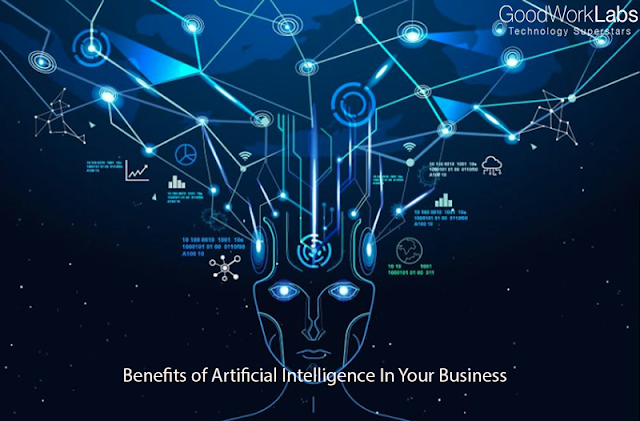Benefits of Artificial Intelligence In Your Business
Learning by doing is good unless it costs you money, so it may not be worth it. In the business world, when new technologies emerge, it can be tempting to take a “wait and see” approach to them, observing the successes and failures of your competitors before taking the time to implement new technologies. Unfortunately, when it comes to the development of artificial intelligence (AI), the potential gain is too great to ignore and waiting to see how your competition implements this technology could leave your business in the dust.
Taking the right steps to implement AI is crucial. Some companies know they have to hire a data scientist, but they don’t know what they want from the person and they will try to hire someone with no framework or plan in place.
The first step towards integrating artificial intelligence into your business strategy is to take it seriously and plan how it will work. Start with an end goal in mind and come back from there. Then determine exactly which AI app will help you achieve this. With that in mind, start a pilot program with a focused goal, keeping in mind that it might take a year or more to see the results of such a program.
While going through the growing difficulties of implementing an enterprise-wide AI system, it may seem like this technology is a huge waste of time and money. Learning by doing is a valuable way to understand the ins and outs of any new technology, and even if your business experience fails, you can still get valuable information about chess. This information can help you better target your next AI experience.
Currently, less than a third of AI pilots are progressing beyond the exploration state to be fully implemented. This does not mean failure, however, it just means that the hypothesis must be adjusted before the experiment is changed and started again from the beginning. As with any new technology, there will be increasing difficulties and opportunities to learn more.
Artificial intelligence can be used in different ways. Some people use AI algorithms to analyze a workable conclusion from massive amounts of data in a way that humans cannot do without the help of a computer. Others use machine learning to control tedious processes that human operators can easily adjust over time.
This can result in many different results. AI algorithms can be used to reduce waste and improve quality by removing unnecessary variables. It can help meet growing demand and reduce variable costs through analysis. He can make adjustments and predict when the market will evolve.
Some examples from real businesses:
- One automotive supplier reduced to scrap by 50% using AI to monitor work quality
- Big River Steel uses AI to produce precision products, maximizing production
- Transplace used AI to make market predictions and saved $21 million in 3 years
Some of the main sectors of the economy find that AI is an integral part of their success. 84% of business leaders worldwide believe that AI gives them a competitive advantage to make stronger and faster decisions, increase production results, reduce system waste, reduce overhead, eliminate equipment failures, etc. It has proven particularly useful in the manufacturing, supply chain and shipping sectors, all pipelines for the highly competitive retail sector.
Today, more than 60% of business leaders have an urgent need to find and implement a strategy for using artificial intelligence in their business, but less than half of them actually have a plan.

Comments
Post a Comment